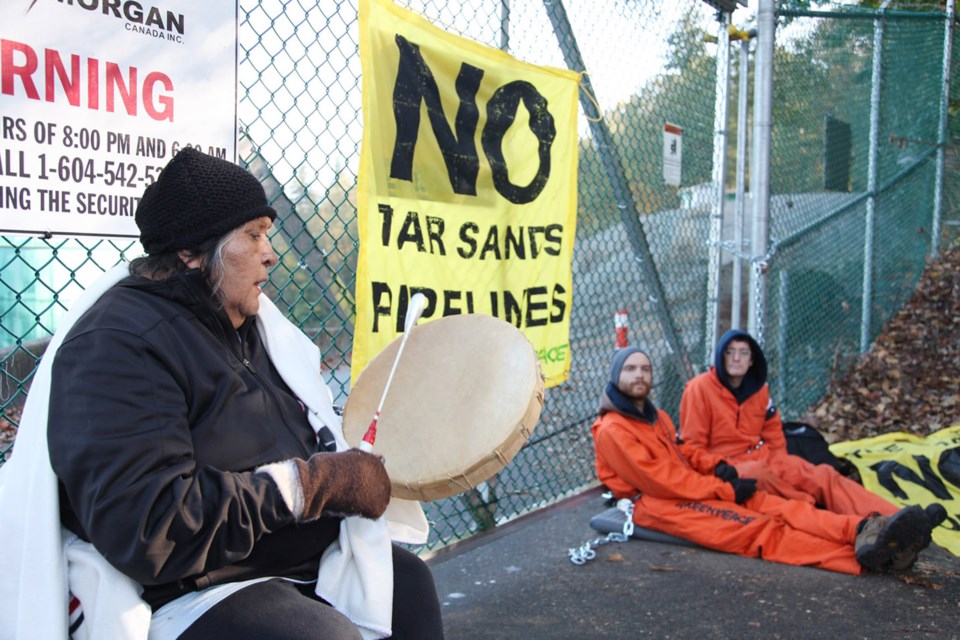As Kinder Morgan tries to figure out how 16 Greenpeace activists were able to get onto its Westridge Marine Terminal property and chain themselves to equipment and the front gate, Burnaby Mayor Derek Corrigan says the issue may be a lack of sufficient on-site security.
“Over the years, we’ve expressed our concerns with Kinder Morgan … relying on more remote centres some distance away and reducing the amount of people working at the plant,” Corrigan told the NOW. “It’s a concern we’ve expressed a number of times. What’s true we always find with companies is their economic interests are really the first priority and they consistently bring that attitude to the table.”
As the Burnaby NOW reported in its last edition, 16 activists from the international environmental group were on site Oct. 16 protesting the Kinder Morgan Trans Mountain expansion project. If approved, the $5.4-billion undertaking would twin the existing 1,150-kilometre pipeline between Strathcona County, Alta. and Burnaby.
Corrigan said he predicts the Kinder Morgan facility in Burnaby will face more protests in the future.
“The reality is these kind of facilities are always potentially targets, and I think we’ve known that for a long time now, that these facilities should be carefully watched because there is a significant public danger as a result of them,” he said. “Any time you’re storing or transporting that much fossil fuel there’s a potential for catastrophe – whether it’s from an accident or an intentional act.”
Corrigan said the protest has disappointed him because it’s indicative of an overall community feeling that people have lost faith in the federal process.
“I do want to say, that for me, my feel in my community is I think there is a lot of passion and while Greenpeace activists are a few individuals who are extremely committed, I think many people throughout Burnaby are very concerned about this Kinder Morgan project, and as they get more information, they begin to realize the actual impacts,” he said.
“I think as a politician, someone responsible for decision-making, I think it’s important that people feel it’s a meaningful process and one that gives the opportunity to truly be heard, and I don’t think that’s the feeling people have gotten so far from the application process before the NEB (National Energy Board), and I don’t think people have gotten the impression that the federal government has got an open mind on the process.”



